Why Is Summerfest Helping Live Nation?
National ‘monopoly’ company’s proposed music halls in Third Ward target local companies.
In January 2020 three representatives of Frank Productions asked to meet with Leslie West and Joe Balistreri, co-owners of The Rave and the Eagles Ballroom complex.
“They wanted to buy us out,” West recalls, “and they would operate it. Their long-term plan was to tear down The Rave and Eagles Club and build at a new location.”
Certainly West had reason to worry about the offer. The massive music company Live Nation owns 51% of Frank Productions and includes it among a long list of subsidiaries it owns nationally. Just in Wisconsin it took over Alpine Valley, The Orpheum in Madison and bought that controlling interest in Frank Productions in 2018, which now books shows as FPC Live and operates the Majestic, The Sylvee and High Noon Saloon in Madison.
But West had been approached years before this by Live Nation, with an offer to buy and had turned them down. “I said I’ve been at this for 27 years and I’m not going to sell it just to tear our buildings down.” But the three people from Frank Productions — Plant, Charlie Goldstone and Scott Leslie — continued to push the idea.
“We said, well, make us an offer,’” West recalls.
Within days, she got an email from Scott Leslie asking to send an appraiser to examine the properties and asking for a list of 17 different documents. The emails, shared with Urban Milwaukee, show that West turned them down. “We feel it is very premature to appraise our building and get all the essential documents when we have no letter of intent, or anything other than a verbal ‘interest,’” she wrote. “We have never indicated to anyone we wanted to sell our business. If someone/company wants to come at us with a blind offer, we would entertain it, otherwise we are not revealing our 27 years of hard work for an assumption of interest.”
Within the music industry, the two proposed halls would be considered “clubs,” venues that mostly serve standing-room crowds rather than offering permanent seats, as theaters do. Which means they wouldn’t compete directly with The Pabst and Riverside. But they could be a threat to the 987-capacity Turner Hall, which is part of the Pabst-Riverside operation run by Gary Witt.
The new music halls would give more clout to the massive conglomerate that is Live Nation and which some members of Congress have called a “monopoly,” asking President Joe Biden to launch an anti-trust investigation. Since Live Nation’s merger with Ticketmaster in 2010, it has created a company that dominates concert promotions, venues and sale of tickets. As of 2018 it controlled more than 200 venues, promoted more than 30,000 shows per year and annually sold 500 million tickets, as a New York Times story found.
All of which raises a number of questions:
Why Is Summerfest now in the business of leasing land to companies? Milwaukee World Festival, Inc. (MWF), the parent organization of Summerfest, is a tax-exempt nonprofit that was long subsidized by the city and also receives donations, including $48 million in gifts over an eight-year period. The land for the new music venue comes from two parcels MWF bought in 2010 and 2011 from Charter Wire. A spokesman for MWF said back then it planned a “flexible and productive use of the area for Summerfest, the ethnic festivals and the neighborhood.” Instead Summerfest will make money by helping an out-of-town conglomerate potentially take business away from local companies.
Should Summerfest be more community oriented? This is just the latest example of Summerfest, which earns more in rent from ethnic festivals than it pays the city for the city-owed land, operating not like a community entity but a corporation. Which is exactly what Summerfest considers itself. As MWF board chairman Howard Sosoff told Urban Milwaukee in 2019, the festival no longer considers itself a partner of the city. “Milwaukee World Festival, Inc., is not a public-private entity,” he said. “It is a private corporation.”
Will this bring more concerts to Milwaukee? That’s what representatives of FPC Live have said. “In cities across the country where new venues were added, where the styles and sizes are different, the result has been additive,” Plant told Urban Milwaukee. But the sizes in this case are almost exactly the same as those owned by The Rave. And if he plans to add to the current scene, then why try to buy out The Rave and Eagles Ballroom? Live Nation has a track record of seeking to dominate the music market, not grow it. Local concert promoters say there is no pie to grow in Milwaukee. “I don’t know of any band that hasn’t played in this city,” West says. “Ask FPC for just three examples.”
Plant promised to get back with more information, but later emailed a statement offering no more examples of bands that haven’t played Milwaukee and saying this: “The venue’s state of the art amenities will offer an additional option for Milwaukee patrons and will solidify our city’s position as a must-play destination for artists at all levels.”
How will Turner Hall be affected? The venerable Milwaukee nonprofit gets about 15% of its revenue from shows booked there by the Pabst management, says its executive director Emilio De Torre. Losing that revenue would have a “dramatic impact,” he said, but he remains confident that Witt and the Pabst Theater Group will withstand the new competitor.
Will Live Nation eventually take over all Summerfest bookings? Pollster lists Live Nation as the promoter increasingly booking shows at Summerfest, including two in 2018, three in 2019 and four in 2021 (there was no festival in 2020 due to the pandemic). Meanwhile Summerfest cut a deal in October 2019 making FPC Live its preferred promoter for any concerts booked at its amphitheater or the BMO Harris Pavilion. (Prior to that Witt and the Pabst had booked some 70 shows at BMO Harris going back years.) Industry insiders point to the likely retirement of Bob Babisch, who has long booked Summerfest shows, and are speculating that Live Nation will eventually take over all bookings.
In an emailed response to Urban Milwaukee, a MWF spokesperson said this: “The Live Nation shows noted in Pollstar may have been part of larger tours produced by Live Nation that played during Summerfest. MWF will periodically book and promote artist tours that are produced by Live Nation, which is likely what is being referenced.” As for speculation that Live Nation will eventually take over all Summerfest bookings, the spokesperson said MWF had “no plans to change” how its bookings are handled.
The proposed music venue is in Ald. Robert Bauman’s district, as is The Eagles Club. Bauman notes that the owners will pay property taxes whereas Summerfest has held the land for a decade without paying taxes. And while “the monopolistic power argument is not one I’m immune to considering,” Bauman says, he’s not sure “the city should be in the business of protecting incumbent businesses.”
Bauman is requesting a zoning change that might slow down the process, as Jeramey Jannene has reported, but is not certain that will have any impact.
Ultimately only the 25-member board of Milwaukee World Festival has the power to stop this project, or to ask questions about the community impact of the ever-closer partnership between Summerfest and Live Nation. And they haven’t offered any public comment.
Site Plan
Renderings
If you think stories like this are important, become a member of Urban Milwaukee and help support real, independent journalism. Plus you get some cool added benefits.
More about the FPC Live venues
- Naming Rights Partner Announced For Deer District Concert Venue - Jeramey Jannene - Oct 8th, 2025
- Friday Photos: New Deer District Concert Venue Takes Shape - Jeramey Jannene - May 23rd, 2025
- Photo Gallery: Construction Progressing at Deer District Concert Venue - Sophie Bolich - Oct 16th, 2024
- Construction Starts on Deer District Concert Venue - Jeramey Jannene - May 31st, 2024
- ‘Inflation-Adjusted’ Deer District Concert Venue Approved - Jeramey Jannene - Nov 21st, 2023
- Eyes on Milwaukee: Revised Deer District Concert Hall Gets First Approval - Jeramey Jannene - Oct 17th, 2023
- Plats and Parcels: Deer District Venue Downsized, But New Hotel Could Join It - Jeramey Jannene - Aug 20th, 2023
- Murphy’s Law: Big Delay in Downtown Concert Halls - Bruce Murphy - Jun 13th, 2023
- Eyes on Milwaukee: Council Unanimously Approves Deer District Concert Venues - Jeramey Jannene - Nov 1st, 2022
- Eyes on Milwaukee: Deer District Concert Halls Okayed Again - Jeramey Jannene - Oct 25th, 2022
Read more about FPC Live venues here
Political Contributions Tracker
Displaying political contributions between people mentioned in this story. Learn more.
- November 15, 2015 - Robert Bauman received $50 from Gary Witt
- February 17, 2015 - Robert Bauman received $100 from Gary Witt
- October 15, 2014 - Robert Bauman received $100 from Gary Witt
Murphy's Law
-
Top Health Care Exec Paid $25.7 Million
 Dec 16th, 2025 by Bruce Murphy
Dec 16th, 2025 by Bruce Murphy
-
Milwaukee Mayor’s Power in Decline?
 Dec 10th, 2025 by Bruce Murphy
Dec 10th, 2025 by Bruce Murphy
-
Total Cost of Foxconn Is Rising
 Dec 8th, 2025 by Bruce Murphy
Dec 8th, 2025 by Bruce Murphy


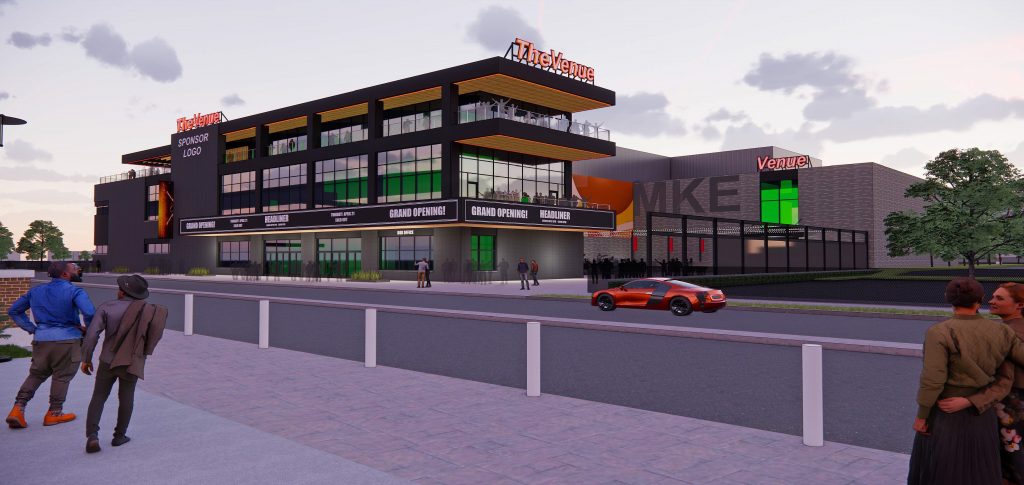
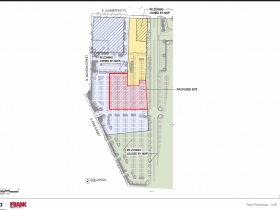
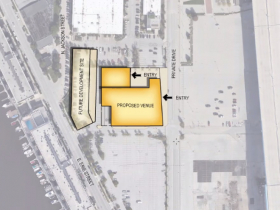
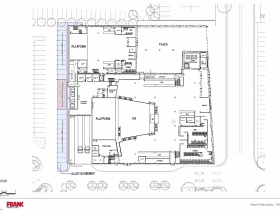
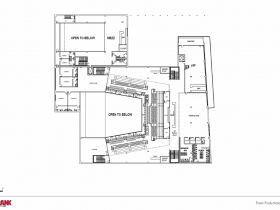
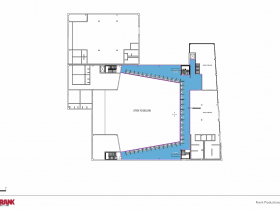
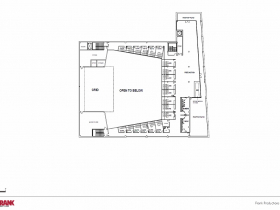
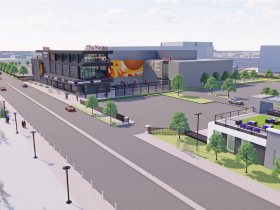
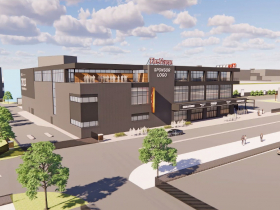
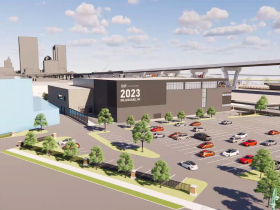
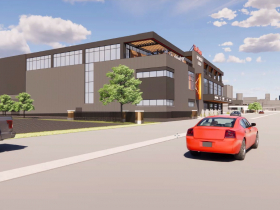
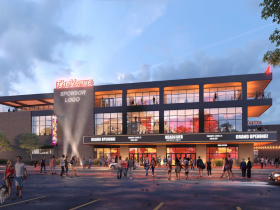




















Bruce, thanks so much for all of this! As the old guy used to say, “And now we know…the REST of the story.” 🙂
Well, probably not all the rest, but more than the message that this is being driven by Live Nation’s beneficence and the goal of making Milwaukee a more competitive music scene.
Why is the (nonprofit) Summerfest helping Live Nation? Indeed…
In its 2019 tax return, filed November 2020, it stated that “The mission of Milwaukee World Festival, Inc. it to promote an understanding of different ethnic cultures, the histories and traditions of various nationalities, harmony in the community, civic pride and provide a showcase for the performing arts, activities and recreation for the public and employment opportunities for the youth of the community”. If MWF isn’t community oriented, it wouldn’t seem to have a reason to exist.
It further states that one director each is appointed by the mayor, the president of the common council, the county executive. I wonder what these directors have to say about this.
“””””Bauman says, he’s not sure “the city should be in the business of protecting incumbent businesses.”””””
There is no poverty, there’s very little crime, and there are no homeless people in Germany because German politicians protect German jobs for the German people. Germans have strong labor unions, free health care, free college education, and 5-6 weeks of paid vacation every year.
We need to support the local music venues. Summerfest in these recent years has ignored community concerns and acted arrogantly in promoting their self-interest. Maybe it is time to reconsider how the Summerfest Board is selected and mandating policy changes that has them supporting local interests.